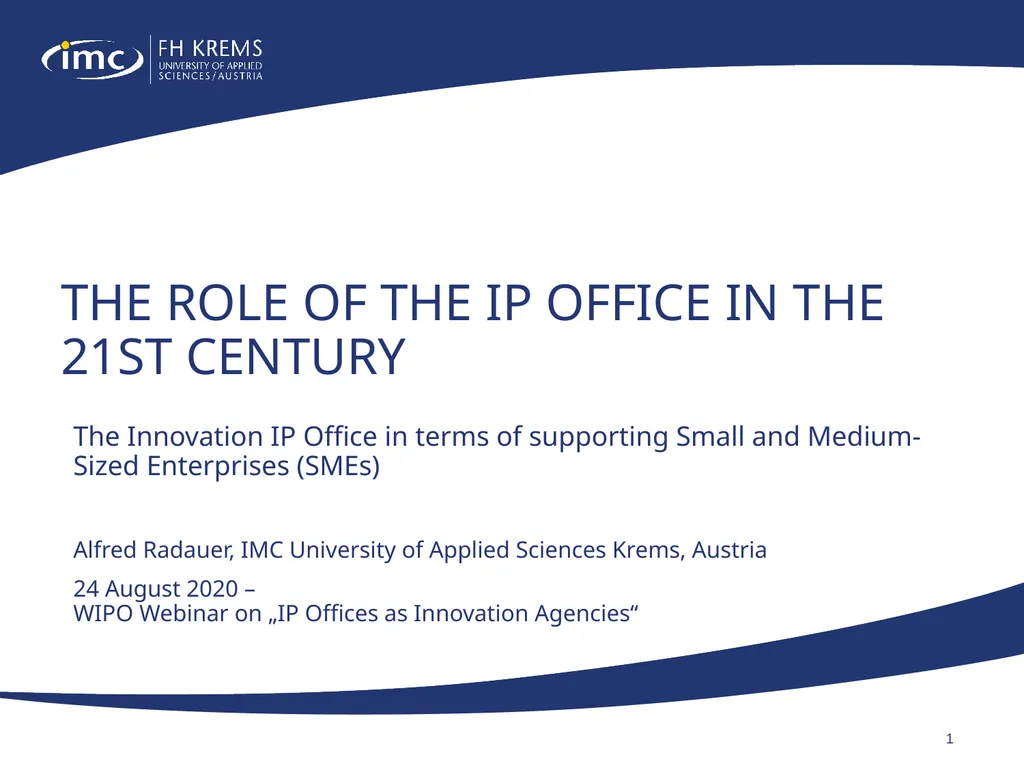
The Role of the IP Office in the 21st Century
Author: pamella-moone | Published: 2025-05-28
Description: The Role of the IP Office in the 21st Century The Innovation IP Office in terms of supporting Small and Medium-Sized Enterprises (SMEs) Alfred Radauer, IMC University of Applied Sciences Krems, Austria 24 August 2020 WIPO Webinar on IP
Download Presentation
Download the PPT/PDF: Download
Transcript:
Loading transcript…